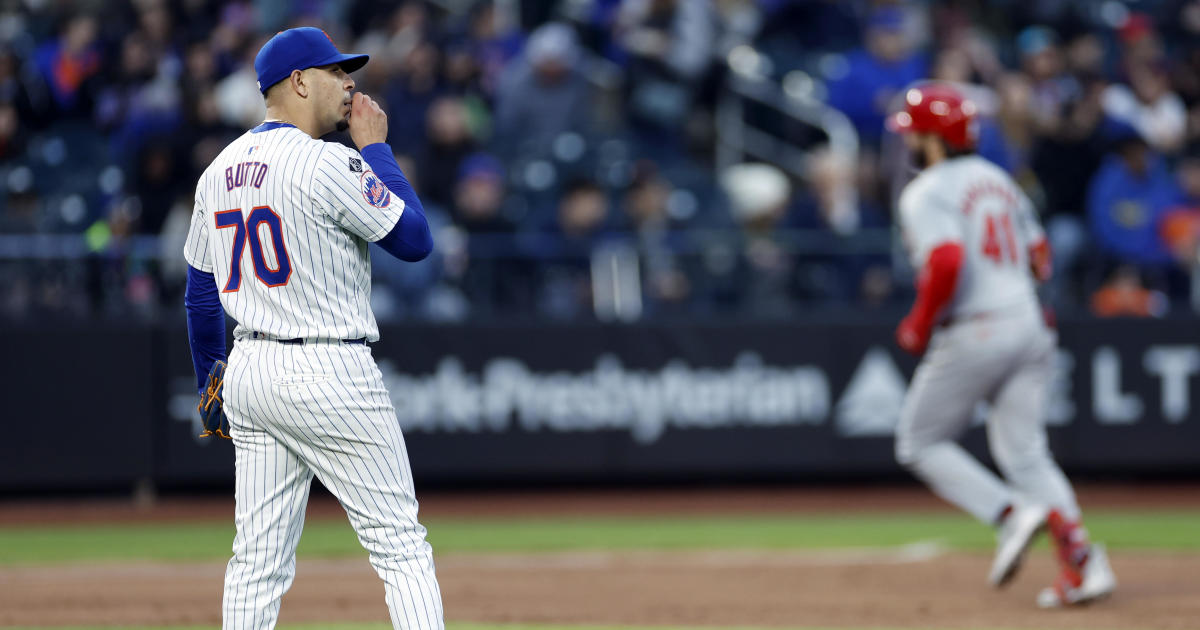Here's what to know about the film and TV writers' strike
TV and movie writers went on strike Tuesday for the first time in 15 years after negotiations with film studios failed to reach a new contract.
History suggests the walkout could last weeks or even months, meaning a hiatus in production for everything from favorite late-night shows to hit streaming series. Here's how we got here and what could happen next.
Who is involved?
Some 11,500 film and TV writers belonging to the Writers Guild of America are negotiating with the Alliance of Motion Picture and Television Producers (AMPTP), which represents eight major studios: Amazon, Apple, Disney, Warner Bros. Discovery, NBC Universal, Netflix, Paramount and Sony. (CBS News and Paramount+ are owned by Paramount Global.)
WGA members work in film, TV, animation and fiction podcasts, according to the Los Angeles Times.
Which shows are affected by the writers' strike?
Late-night shows, which are written daily, are expected to stop production immediately. "The Late Show" on CBS, "Jimmy Kimmel Live!" on ABC, "The Tonight Show" on NBC, "Late Night" on NBC and Comedy Central's "The Daily Show" are expected to turn to reruns starting Tuesday.
Less clear is how daytime talk shows, which tend to rely more on chit-chat by hosts and celebrity interviews, could be affected. Production on ABC's "The View" continued uninterrupted during the last strike in the 2007-08 season, for example.
Meanwhile, streaming networks aren't likely to see an immediate impact given that they work on longer timelines than late-night shows.
Some TV show hosts have voiced support for the striking writers. On "The Late Show" Monday night, host Stephen Colbert expressed support for the union.
"Everybody, including myself, hopes both sides reach a deal," he said. "But I also think that the writers' demands are not unreasonable. I'm a member of the guild. I support collective bargaining. This nation owes so much to unions."
Speaking on "Late Night" on Friday, host Seth Meyers, a WGA member, also expressed support for striking writers, while saying a strike "would really be a miserable thing for people to have to go through."
Writers "are entitled to make a living," he said. "I think it's a very reasonable demand that's being set out by the guild. And I support those demands."
Why are writers striking?
At the core of the dispute is the explosion in streaming services and its effects, including the erosion of writers' pay and job security, according to the WGA.
Even as budgets for series have grown, writers are making a smaller share of the money, the guild said. Streaming services use smaller writing staffs, which the industry calls "mini rooms," and also tend to have shorter seasons than broadcast shows. That leaves some writers scrambling to put together several sources of income in a single season.
On average, showrunners for streaming series make less than half of what showrunners for broadcast series do, the WGA said. And because writers on streaming shows don't get the back-end payments that have allowed broadcast and screenwriters to make a living, such as syndication and international licensing, the WGA is seeking to secure more pay on the front end for its members.
Since 2018, inflation-adjusted pay for screenwriters has fallen 14%, according to the guild. For writer-producers, pay has sunk 23%.
What are the writers asking for?
The Writers Guild wants total pay increases for members amounting to about $429 million per year, according to the WGA, while the AMPTP's counter would run $86 million per year.
The number of writers working at guild minimum pay has risen from about a third to about half in the past decade. Meanwhile, writers for comedy-variety shows for streaming services have no minimum pay protections and tend to get paid less than their counterparts in broadcast.
The minimum pay for WGA members varies based on a writer's title and the length of the individual's employment contract, but the minimum for the lowest-paid writer is $4,546 per week, according to Variety.
The studios "have closed the door on their labor force and opened the door to writing as an entirely freelance profession," WGA leadership said Monday in a statement. That has created a "gig economy inside a union workforce," it added.
Studios counter that they are thinking about the long-term health of the industry. The AMPTP said Monday that the primary sticking points to a deal revolved around the guild's request for a minimum number of scribes per writer room. The group added that its offer "included generous increases in compensation for writers as well as improvements in streaming residuals."
A key industry dynamic behind the labor dispute: Hollywood is under increased pressure from Wall Street to turn a profit. After years of lavish spending to expand streaming services, many studios and production companies are slashing spending. For example, the Walt Disney Co. is cutting 7,000 jobs, Warner Bros. Discovery is slashing costs to lessen its debt and Netflix has pumped the brakes on spending growth.
"The current streaming services are largely not profitable. Only Netflix is turning a profit right now," Alex Weprin, media and business writer at the Hollywood Reporter, told CBS News. "These large entertainment companies, they don't really have a good sense of how profitable these services are going to be and how much they can afford to pay the writers."
What does AI have to do with it?
Artificial intelligence is another point of contention in the labor talks, with guild writers asking for strict limits on AI use in scripts. They don't want to rewrite material generated by AI, nor for AI to rewrite human-created scripts, and they want union-covered material to be excluded from training AI models.
The studios have so far rejected these demands, a position one writer described as "insulting."
"We are fighting for nothing less than the survival of writing as a viable career," writer and comic Adam Conover tweeted.
How much do Hollywood and TV writers make?
Staff writers, the lowest-paid roles, typically work an average of 29 weeks on a network show for $131,834 annually, or an average of 20 weeks on a streaming show for $90,920. For a writer-producer, the figure is $6,967 per week, according to the trade magazine Variety. For a writer-producer, the figure is $6,967 per week.
Advocates for the studios and producers say that pay is far from the poor-house picture writers present publicly. AMPTP leaders say their priority is "the long-term health and stability of the industry" and that they are dedicated to reaching "a fair and reasonable agreement," according to the Associated Press.
What are writers allowed to do during the strike?
According to the WGA's strike rules, writers cannot do any writing or rewriting during the strike. They are barred from attending meetings or negotiating with the studios, pitching new projects, entering agreements to option their work or even attending promotional events for existing projects.
By contrast, they are allowed to accept payment for any writing that's already been completed. Writer-producers, writer-actors and writer-directors are allowed to do the non-writing part of their job during the strike, but they're banned from doing any writing no matter how minor, such as revising dialogue or tweaking stage directions.
When was the last writers' strike?
The last time the film and TV writers put down their keyboards was in 2007-08 in a strike that lasted 100 days.
During that labor action many shows, such as "30 Rock," "CSI," and "Grey's Anatomy," shortened their seasons while studios pumped out more unscripted reality shows. "Big Brother" and "The Amazing Race" both increased their output. "The Apprentice," hosted by Donald Trump, got new life when a celebrity version of the shelved show was created to help fill the scripted void.
Among the main concessions the writers won that time were requirements for fledgling streaming shows to hire unionized writers if their budgets were big enough. It was an early harbinger of nearly every entertainment labor fight in the years that followed.
How often have writers gone on strike?
Writers have gone on strike more than any group in Hollywood, according to the AP, with six strikes since 1960. The first strike, in 1960, lasted nearly five months; strikes followed in 1973, 1981 and 1985.
The longest work stoppage, lasting 153 days, came in 1988.
The Associated Press contributed to this report.



